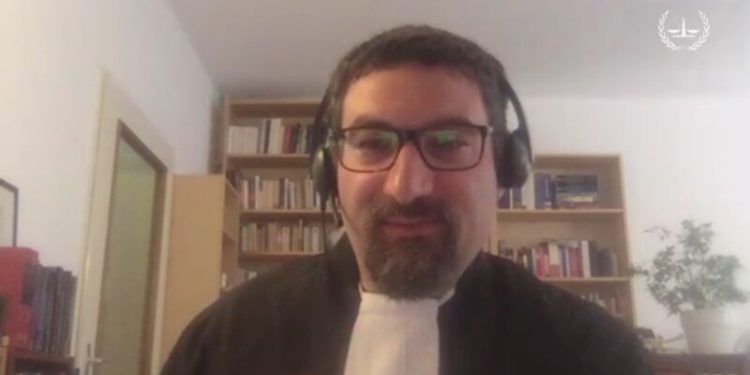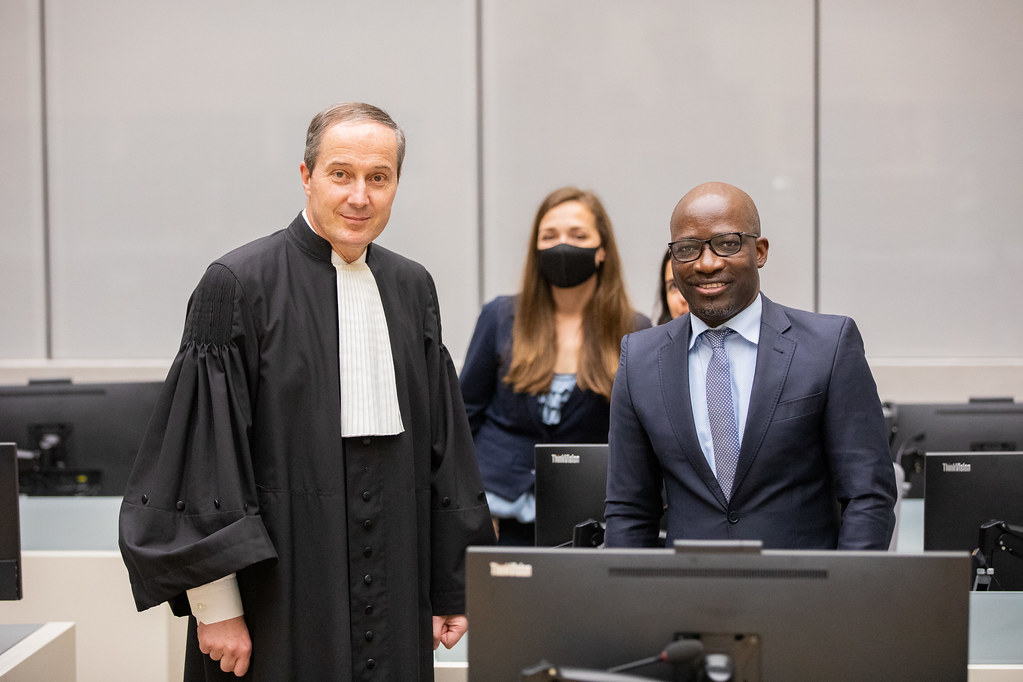By Susan Kendi
Defence lawyers told the International Criminal Court (ICC) that the prosecution was wrong to say Trial Chamber I failed to set and apply a standard of proof when they dismissed the evidence against former Ivory Coast President Laurent Gbagbo and former Cabinet Minister Charles Blé Goudé and acquitted them.
The defence teams of Gbagbo and Blé Goudé told the Appeals Chamber on Tuesday that Trial Chamber I gave the prosecution enough time during the no case to answer proceedings to show how strong its evidence was irrespective of any standard of proof the chamber determined applied during such proceedings.
Lawyers for Gbagbo and Blé Goudé made these submissions as they argued against the second ground of the prosecution’s appeal opposing the January 15, 2019 acquittal of their clients.
The no case to answer proceedings the defence referred to on Tuesday took place during the trial of Gbagbo and Blé Goudé after the prosecution had concluded its case against them. The two defence teams filed submissions arguing the evidence the prosecution presented against their clients was weak. In their no case to answer motions filed in July 2018 and August 2018 they asked Trial Chamber I to dismiss the four counts of crimes against humanity Gbagbo and Blé Goudé each had been charged with for their alleged role in the violence that erupted after the November 2010 presidential election in Ivory Coast.
Trial Chamber I’s Presiding Judge, Cuno Tarfusser, and Judge Geoffrey Henderson agreed with the defence and acquitted their clients. Judge Olga Herrara Carbuccia dissented from that January 15, 2019 acquittal. Six months later, the judges rendered on July 16, 2019 the written reasons for the majority decision to acquit and the dissenting opinion.
On Monday, prosecution lawyer Priya Narayanan argued the prosecution’s second ground of appeal. Narayanan, who spoke at the end of Monday’s hearing, said the prosecution was appealing against the majority decision of Trial Chamber I because the chamber failed to set a standard of proof for the no case to answer motions the defence filed. Narayanan also said that part of the prosecution’s second ground of appeal was Judges Tarfusser and Henderson used different standards of proof while reaching their majority decision to acquit Gbagbo and Blé Goudé.
On Tuesday, Dov Jacobs, one of the lawyers for Gbagbo, said the prosecution was able to present a 582-page mid-trial brief and a 1,057-page response to the no case to answer motions the defence filed. Jacobs said the prosecution was also able to make oral submissions before Trial Chamber I in October and November 2018, “to explain just how solid, reliable, authentic and corroborated its evidence,” was.
“This is why the prosecution is incapable of answering a very simple question put by the defence since the outset of this appeal, namely, how would communicating a specific no case to answer standard of proof to the prosecution beforehand have changed the manner in which the prosecution presented its evidence during trial? Or the manner in which it defended its evidence during the no case to answer?” said Jacobs.
Geert-Jan Knoops, Blé Goudé’s lead lawyer, argued it was wrong for the prosecution to claim the majority of Trial Chamber I failed to be clear about the standard of proof they applied in the no case to answer motions. He disagreed with the prosecution that the trial chamber should have provided what he described as “an evidentiary menu”.
“Nowhere in the prosecution’s submissions do we see the affirmation that its evidence at the close of its case was capable at all of proving that Charles Blé Goudé was guilty beyond a reasonable doubt,” said Knoops.
“For this an evidentiary menu, as apparently required based on the submission of the prosecution, is not necessary,” argued Knoops.
When Tuesday’s hearing began, Paolina Massidda, the lawyer representing victims in the case of Gbagbo and Blé Goudé, was the first to maker her arguments on the prosecution’s second ground of appeal. She said the trial chamber erred in law when it failed to identify a standard of proof it would use in the no case to answer proceedings.
“In reading the three annexes supposed to form the basis for the 15 January 2019 oral decision, it is clear that the three judges failed to agree on a common applicable standard. In fact, in the written reasons, the three judges made no secret that they looked at the evidence against three different thresholds,” said Massidda.
“While such fractured views are acceptable between the majority and the dissenting judge, a disagreement of this magnitude within the majority itself is inadmissible. The majority cannot simply agree on the outcome of the proceedings, an acquittal, in this case, without agreeing on the reasons why the two defendants are to be acquitted and how to reach such a conclusion,” argued Massidda.
During her submissions on Tuesday, Massidda also argued why, in her view, Judge Henderson did not properly analyse the evidence the prosecution presented to Trial Chamber I.
“Victims noted with deep regret that the (acquittal) decision did not even mention their targeting, sufferings and the dramatic consequences of the crimes on them, their families and their communities,” said Massidda.
Once the different legal teams made their submissions on the prosecution’s second ground of appeal, Presiding Judge Chile Eboe-Osuji and Judge Luz del Carmen Ibáñez Carranza asked them questions on different legal issues. The questions the judges asked the lawyers on Tuesday were in addition to the ones the Appeals Chamber asked the lawyers to make submissions on in an April 30 decision.
Judges Eboe-Osuji and Ibáñez asked all lawyers for their views on whether the Rome Statute provided for no case to answer proceedings. Judge Ibáñez’s question focussed on the principle of legality in relation to no case to answer proceedings at the ICC. Judge Eboe-Osuji’s question focused on how provisions in Articles 64, 66 and 67 applied to no case to answer proceedings.
When the judges concluded their questions the hearing adjourned.







